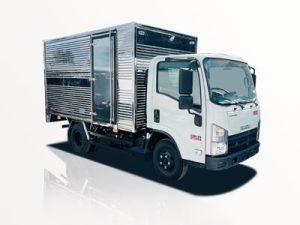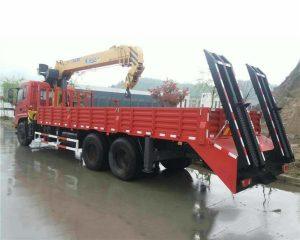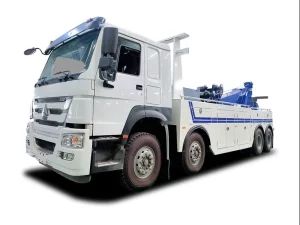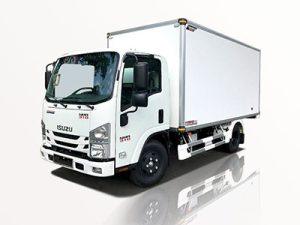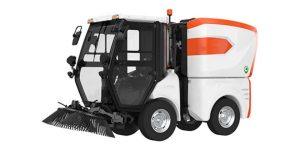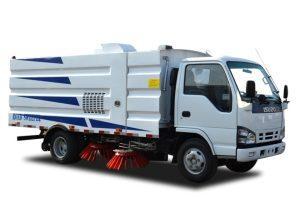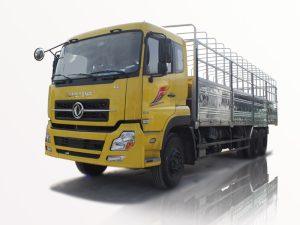Monday to Saturday - 8:00 -17:30
Understanding Water Spray Trucks: Uses, Advantages, and Best Practices
Introduction
Water spray trucks are essential vehicles used in various industries, including construction, agriculture, and municipal services. They play a crucial role in maintaining cleanliness, dust control, and irrigation. As environmental concerns grow, these trucks have also become vital in managing water resources efficiently. This article explores what water spray trucks are, their applications, benefits, and key considerations for effective operation.
What is a Water Spray Truck?
A water spray truck, also known as a water truck or a water tanker, is a specialized vehicle equipped with a tank that holds large quantities of water. These trucks have spray nozzles at the rear that distribute water effectively over a selected area.
Types of Water Spray Trucks
There are various types of water spray trucks, each designed for specific applications:
1. Dust Control Water Trucks
These trucks are primarily used on construction sites and unpaved roads to minimize dust. By spraying water, they enhance air quality and improve safety.
2. Irrigation Water Trucks
Agricultural water spray trucks are employed in farming areas to provide necessary irrigation. These trucks are equipped to cover large fields effortlessly.
3. Fire Suppression Water Trucks
These trucks are outfitted with a specialized system to deliver water for firefighting efforts. They can rapidly respond to fire emergencies in remote or hard-to-reach areas.
4. Street Cleaning and Maintenance Trucks
Municipal water spray trucks are used for washing roads, cleaning streets, and maintaining public infrastructure.
Key Components of a Water Spray Truck
Understanding the components of water spray trucks is essential for their operation and maintenance.
1. Water Tank
The most critical component of a water spray truck is its tank, which can hold varying amounts of water, typically ranging from 1,000 to 6,000 gallons.
2. Pump System
A robust pump system facilitates the flow of water from the tank and through the spray nozzles. The pump’s PSI rating determines the pressure at which the water is sprayed.
3. Spray Nozzles
Spray nozzles can be adjusted to achieve different spray patterns, such as mist or direct spray. The choice of nozzle type depends on the specific application.
4. Chassis
The base of the truck, typically a heavy-duty chassis, ensures that the vehicle can handle the weight of the water and withstand rough terrains.
Applications of Water Spray Trucks
Water spray trucks are employed in numerous scenarios, showcasing their versatility.
1. Construction Sites
On construction sites, water trucks are essential for dust control, reducing air pollution, and ensuring worker safety. Regular spraying keeps dust clouds at bay and maintains visibility.
2. Agricultural Irrigation
Farmers utilize water spray trucks for irrigation. These trucks can efficiently distribute water to crops, ensuring they receive adequate moisture, especially in arid regions.
3. Firefighting
In emergency situations, water spray trucks can be deployed for firefighting purposes. With a high-capacity water tank and powerful spray system, they quickly combat flames in rural areas.
4. Municipal Services
Cities use water spray trucks for street cleaning and maintaining public spaces. This application removes debris and dirt, helping to prevent flooding during rains.
5. Dust Suppression on Roads
Water trucks regularly travel unpaved roads to dampen the surface and minimize dust emissions, thereby promoting air quality in surrounding areas.
Benefits of Using Water Spray Trucks
Water spray trucks offer a myriad of benefits, making them indispensable in several industries.
1. Improved Air Quality
By controlling dust emissions, water spray trucks significantly improve air quality, which is crucial for both worker health and the environment.
2. Cost-Effectiveness
Using water spray trucks can be more cost-effective than using chemical dust suppressants, saving municipalities and businesses money over time.
3. Enhanced Visibility
In construction or mining sites, proper dust control improves visibility, reducing accidents and improving operational efficiency.
4. Versatility
Water spray trucks can be adapted for various applications, making them suitable for multiple industries.
Choosing the Right Water Spray Truck
Selecting the appropriate water spray truck depends on various factors.
1. Assess Your Needs
Identify the primary purpose of the truck. Is it for dust control, irrigation, or firefighting? This will guide your decision.
2. Tank Size
Choose a water tank size that fits your requirements. Larger tanks are suitable for extensive projects, while smaller tanks work for local operations.
3. Pump Specifications
Evaluate pump specifications, including PSI and flow rate, matching them to the operational requirements.
4. Vehicle Specifications
Consider the truck’s chassis and durability, especially if used in rough terrains or for heavy loads.
Maintenance Practices for Water Spray Trucks
Regular maintenance ensures the longevity and efficiency of water spray trucks.
1. Routine Inspections
Conduct regular inspections of the water tank, pump system, and spray nozzles for wear and damage.
2. Cleaning
Keep the tank and nozzles clean to prevent blockages and ensure proper operation.
3. Schedule Repairs
Promptly address any mechanical issues to avoid costly repairs or unexpected downtime.
4. Water Quality Monitoring
Regularly monitor water quality to prevent contamination, particularly for agricultural uses.
Practical Examples and Tips for Using Water Spray Trucks
Incorporating practical tips can enhance the effectiveness of water spray truck operations.
1. Utilize Automated Systems
Automated spray control systems can improve efficiency in large areas, saving time and water.
2. Timing Matters
Timing your water spray can significantly impact its effectiveness. Spraying early in the morning or late in the evening reduces evaporation losses.
3. Adjust Spray Patterns
Tailor spray patterns to the specific application and surface conditions for optimal results.
4. Monitor Weather Conditions
Be mindful of weather conditions, as wind and high temperatures can affect water distribution and evaporation.
FAQs about Water Spray Trucks
1. What is the average cost of a water spray truck?
The average cost can range from $30,000 to $100,000 depending on the size and features you require.
2. How often should I maintain my water spray truck?
Regular maintenance is recommended every 500 hours of operation or every six months, whichever comes first.
3. Can water spray trucks be customized for specific needs?
Yes, many manufacturers offer customization options for tank size, pump types, and spray nozzles.
4. Is it possible to use reclaimed water in spray trucks?
Yes, as long as local regulations permit it and the reclaimed water meets safety standards.
5. What are the environmental benefits of using water spray trucks?
They help reduce dust emissions, improve air quality, and conserve water by providing efficient irrigation methods.
6. Are water spray trucks suitable for all terrains?
Many water spray trucks are designed for rough terrains, but chassis choice should depend on specific operational needs and conditions.


